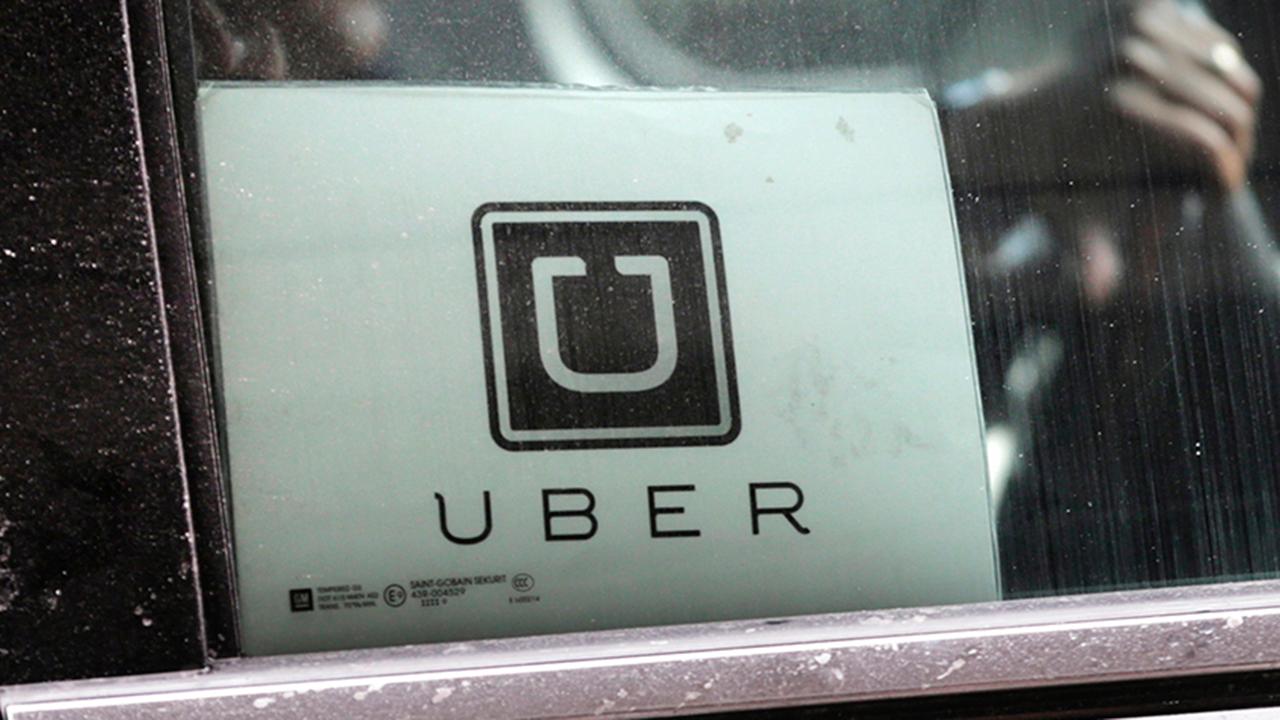Uber, Lyft under fire for coronavirus response
Sick leave policy for drivers is 'a half-measure,' lawyer says
Like many other industries, the U.S. rideshare industry has taken a hit because of reduced demand brought on by the coronavirus pandemic.
Rideshare companies like Uber and Lyft halted all pool services in the United States and Canada on Monday without raising the cost of single-rider services as a precautionary measure to protect its customers.
"The mounting fear and uncertainty caused by the coronavirus is being felt by everyone around the world," an Uber spokesperson told FOX Business. "We know it’s especially concerning for people who drive and deliver with Uber. In these difficult times, their well-being is at the top of our minds, and we have a dedicated team working around the clock to support them the very best we can."
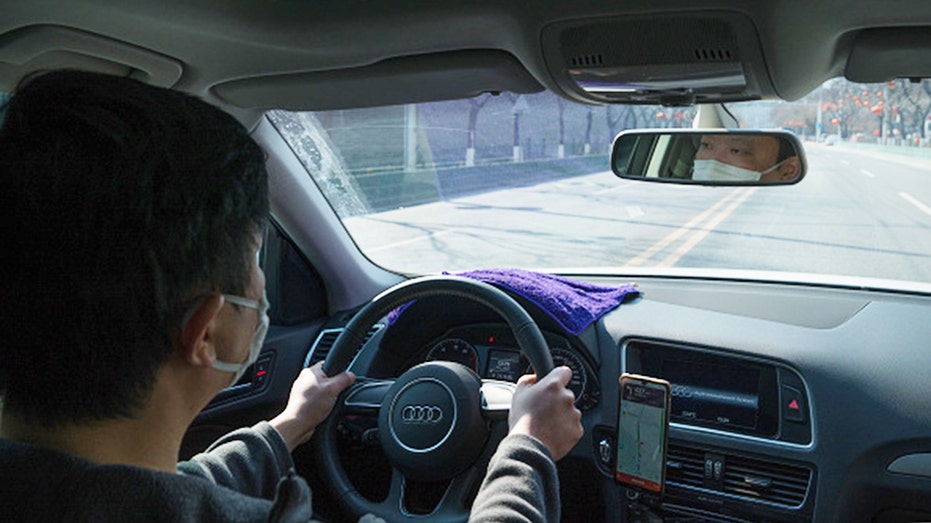
A Didi (Chinese alternative to Uber) driver wears a mask while driving on February 15, 2020 in Beijing, China. (Photo by Andrea Verdelli/Getty Images)
But drivers, who work as independent contractors in all states except California, are worried that this decision and a general lack of demand will lead to less compensation and fewer tips.
"Sickness is not an option for me because not working is not an option. If I do get sick, I will have to continue to work or I will lose my ability to exist – it’s not just income," a driver by the name of Eden A. told popular rideshare blog The Rideshare Guy as part of a COVID-19 response survey.
"Before the coronavirus outbreak, I managed to pay my bills on a monthly basis, with no room for error. Here are the things at risk: paying rent, my car payment, my health insurance, and, of course, food," Eden A. told the blog. "If I have to stop working without any safety net, I would lose all of these things."
Uber previously told FOX Business that it would offer up to 14 days of paid sick leave to drivers who test positive for COVID-19, the disease caused by the novel coronavirus, or those who have been otherwise affected by self-quarantine.
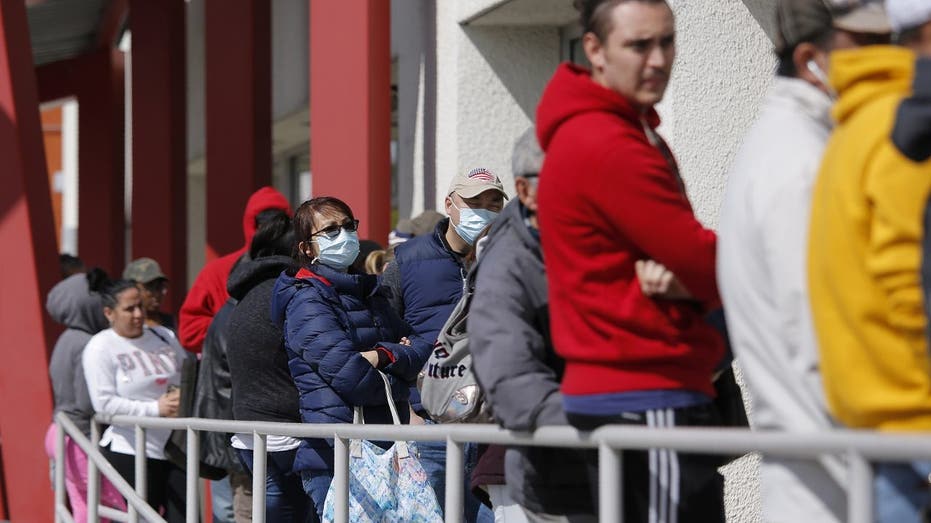
People wait in line for help with unemployment benefits at the One-Stop Career Center, Tuesday, March 17, 2020, in Las Vegas. (AP Photo/John Locher)
"We are supporting drivers and delivery people who are diagnosed with COVID-19 or placed in quarantine by a public health authority. Drivers and delivery people in these situations will receive compensation for a period of up to 14 days," Uber's Senior Vice President of Rides and Platform Andrew Macdonald said in a statement.
Lyft offers the same 14-day measure.
"In order to strengthen earning opportunities for current Lyft drivers, we are temporarily pausing onboarding of new drivers in regions most impacted by the COVID-19 situation," Lyft said in a statement. "We are working hard to support those who drive with Lyft and are coordinating with government officials on additional solutions."
Drivers, however, say this does not offer drivers enough time to self-quarantine as people are encouraged to practice social distancing to contain the spread of COVID-19.
Nearly 80 percent of 189 drivers who answered a survey question from popular rideshare blog The Rideshare Guy said Uber and Lyft are not doing enough for workers in response to the virus.
Respondents said the apps could provide additional compensation, a sick leave fund, better communication and health safety products like hand sanitizer and disinfectant wipes to drivers to help curb the issue.
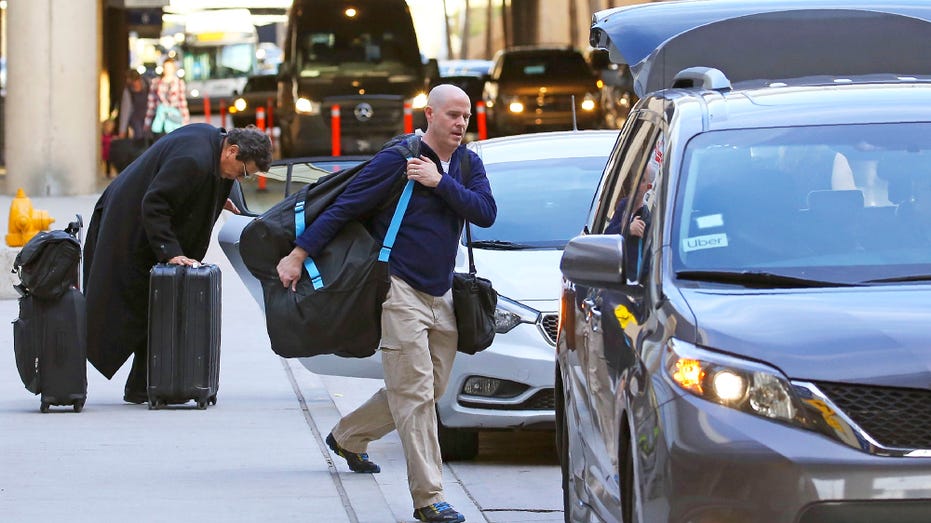
Passengers find their rides at the Ride Share point as they exit Phoenix Sky Harbor International Airport in Phoenix. (AP Photo/Ross D. Franklin, File)
One anonymous respondent said the companies could "send an email to Uber and Lyft riders reminding them that their drivers are risking their health in order to provide them a ride. Maybe even an acknowledgment from Uber and Lyft to thank the drivers for continuing to drive, which enables Uber and Lyft to run normally and for riders to get where they need to go."
"I think this would help both Uber and the driver. The driver would probably receive more tips and Uber can represent itself as a company still providing services," the driver said, according to the report.
But Uber and Lyft are already taking strides to meet these demands from both drivers who are requesting help and riders who are requesting extra safety precautions.
The Uber spokesperson said that while supplies are limited, the company is actively working with manufacturers to provide things like hand sanitizer to drivers. Additionally, the company sent its drivers around the world an in-app message with guidance and tips on how to stay safe.
The Wall Street Journal also reported on March 8 that services are apparently already considering funds to alleviate hardships for drivers that are impacted by COVID-19.
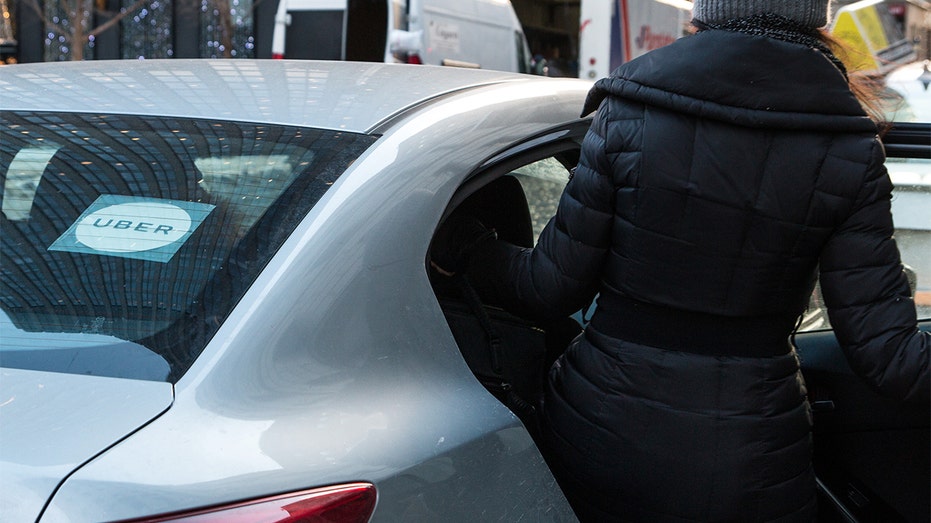
A woman in a black coat is getting inside of a Uber car. In the rear window, the white Uber sticker is visible. / iStock
In California, the state aims to recognize rideshare workers as employees under a law that passed in January called AB5, which Uber and Lyft continue to fight against.
Uber's COVID-19 paid sick leave offering, however, does not match California state paid sick leave law that mandates at least one hour of paid sick leave for every 30 hours of work for California employees.
Labor attorney and AB5 advocate Shannon Liss-Riordan filed complaints on behalf of drivers in California and Massachusetts last week against Uber and Lyft asking judges to issue emergency actions that would force the rideshare giants to comply with state employment laws that mandate specific amounts of sick leave for employees.
The complaints are part of a larger ongoing issue regarding whether drivers should be compensated as employees by state labor laws or independent contractors since they work their own desired hours.
One of the complaints added to existing gig-worker lawsuits against both companies in Massachusetts.
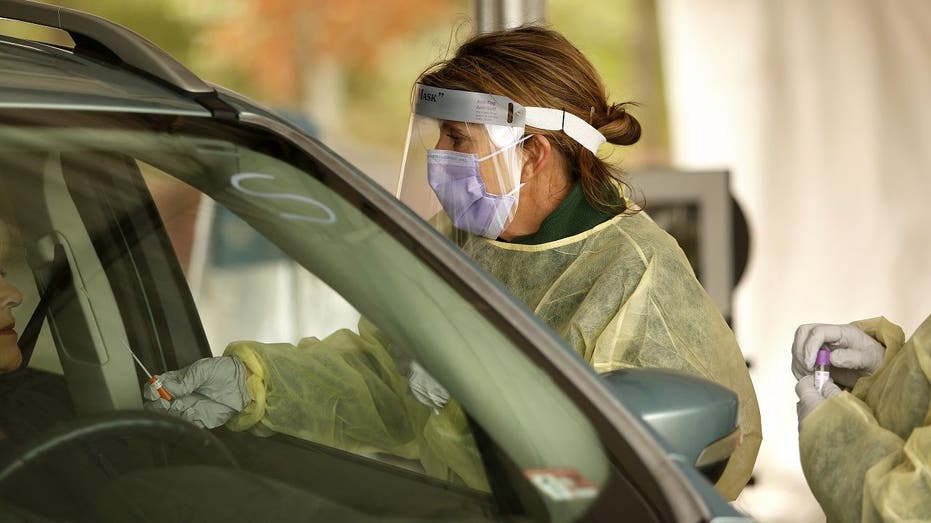
Healthcare providers with Sentara Princess Anne Hospital operate a drive-through testing station for patients who meet the criteria for the coronavirus in Virginia Beach, Va., Monday, March 16, 2020. (Stephen M. Katz/The Virginian-Pilot via AP)
"Last week, we filed new complaints against Uber and Lyft for misclassifying their drivers as independent contractors and thus denying them California (and Massachusetts) mandated sick pay because they’re not employees," Liss-Riordan said in a statement to FOX Business. "Because they are not being provided with state-mandated sick pay, drivers will continue working even if they are sick while they should be staying home because of the coronavirus."
Liss-Riordan explained that it's not just a matter of money but a matter of public safety is drivers continue to work while sick so they can earn money.
She called Uber and Lyft's solution of two weeks paid leave a half-measure that does not provide the protections of laws in California and Massachusetts.
"Uber and Lyft's policies do not address the crisis we are facing. It is very unfortunate that such a crisis may be necessary to prompt these companies into actually complying with the law and extending employment protections to their drivers," she added.
This article has been updated to include a statement from Lyft.




















